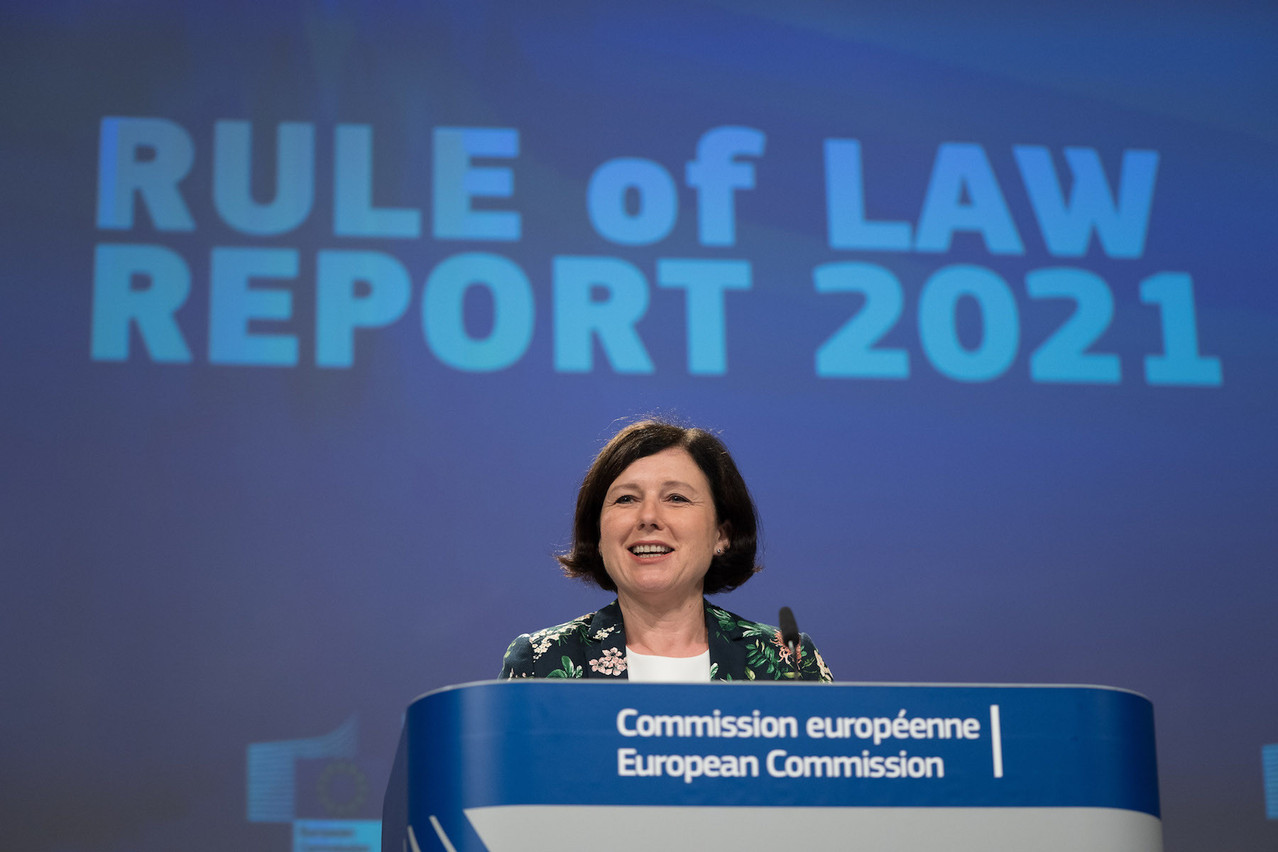The Luxembourg country chapter reports that Luxembourg’s justice system “continues to operate with a high level of perceived judicial independence”. Indeed, 77% of the population considers the level of independence of courts and judges to be “fairly or very good”. The authors also say that “constitutional revision aimed at further strengthening judicial independence is advancing”. Indeed, as an published earlier this week showed, agreement has been reached with the Council of State, the major political parties and the ministry of justice to enshrine the independence of the public prosecutor's office.
Lobbying and the revolving door
The commission report also says that the Luxembourg government is assessing the need to strengthen anti-corruption rules. “A code of conduct for members of the Parliament partially regulates lobbying activities, but shortcomings remain as to the overall consistency and implementation. Room for improvement remains with regard to the revolving door, as specific provisions exist only for members of the government.” The latest instance of what could be considered abuse of the revolving door system involves Xavier Bettel’s outgoing , who is slated to take over as CEO of data centre facility and dark fibre provider Luxconnect, which is in charge of the Meluxina supercomputer among other projects.
Luxembourg has also taken steps to alleviate concerns raised in last year’s report about media regulator (ALIA) and increased its resources. But it says that “concerns remain on shortcomings for access to official documents and for access to information for the press.” These were particularly highlighted during the early days of the covid pandemic, as vice president of Luxembourg's union for journalists in April this year.
But the report also points out that perception among experts and business executives is that the level of corruption in the public sector in the grand duchy remains low, even if it has deteriorated over the past five years. Indeed, in Transparency International’s 2020 Corruption Perceptions Index Luxembourg scored 80 out of 100 and ranked fourth in the European Union and ninth globally.
“Overall, the report shows many positive developments in member states, including where challenges identified in the 2020 report are being addressed,” the commission said in a press release to accompany the publication of the report.
Yet it shows clear, persisting challenges in some Member States as regards the independence of the judiciary as well as media freedom and pluralism.
Judiciary under pressure in some states
While some other member states have also taken steps to strengthen judicial independence, the commission’s findings show, to nobody’s surprise, that a few member states “have continued to carry out reforms that lower their safeguards for judicial independence, raising concerns or aggravating the existing ones related to increased influence of the executive and legislative branch over the functioning of their justice system.” Hungary’s country chapter includes reference to new rules allowing for appointment of members of the constitutional court to the supreme court “outside the normal procedure”. While the Poland report expresses concern about reforms carried out since 2015 that have increased the influence of the executive and legislative powers over the justice system. On Tuesday the commission sent a letter to Poland, asking it “to explain how it applies the interim measures and recent ruling of the CJEU to safeguard judicial independence.”
The commission wants the Council and the European Parliament to have general and country-specific debates on the basis of the rule of law report. It concludes that the commission is “ready to assist” member states in effort “to effectively take up the challenges identified in the report.”
